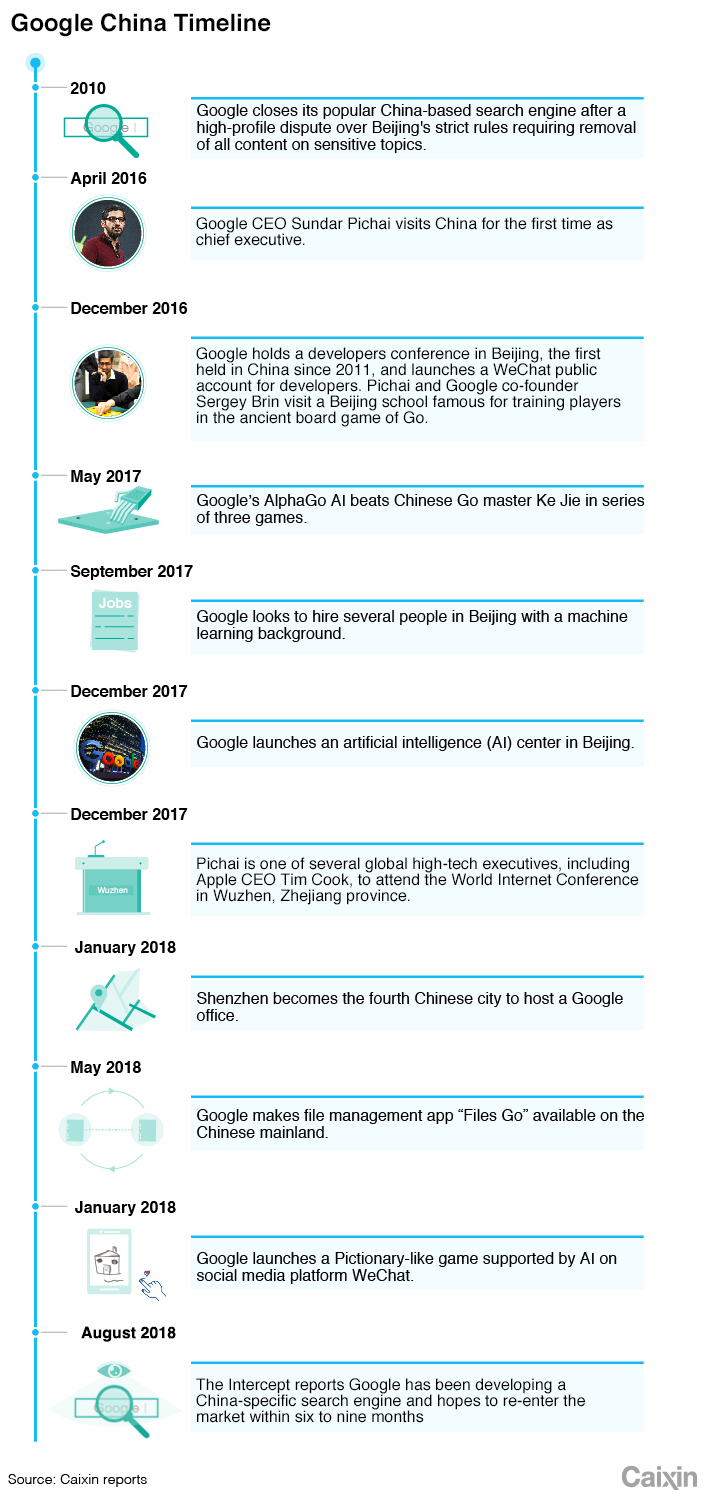Baidu Dares Google to Tread on Its Turf Again

* The founder of China’s top search engine responded to reports Google is working to re-enter the Chinese market by saying Baidu will “win again” in a head-to-head fight
* The CEO of Sogou, a distant second to Baidu in China, said on Weibo that Google’s return could help people notice his company’s “efforts and differentiation”
(Beijing) — The founder of dominant Chinese search engine Baidu predicted his company will “again be victorious” against Google if the U.S. search giant returns to China, even as many Chinese internet users said they would welcome such a return.
In separate comments, the head of China’s No. 2 search engine also said Google’s return would bring Chinese internet users more choice, potentially raising the profile of his own company, Sogou, which is a distant second to Baidu in the market.
China’s search market has become dominated by Baidu in the eight years since Google withdrew after refusing to continue complying with Beijing’s strict requirements for self-policing its site and removing sensitive material. But speculation that competition could soon return heated up last week when media reported Google had secretly developed a new China-specific search engine that would comply with Beijing’s tough requirements.
Google has declined to comment on the earliest report in The Intercept, which cited unnamed internal company sources.
Baidu controlled around 80% of China’s search market by revenue in this year’s first quarter, followed at a distant second by Sogou with 6.6%, according to data tracking firm Analysys. Google controlled about 30% of the market when it pulled out in 2010. But it had been rapidly losing share to Baidu, which controlled most of the rest at that time.
“If Google decides to come back to China, we are extremely confident if we go head-to-head again that we will win again,” Baidu founder and chief executive Robin Li said in a post on the popular WeChat instant messaging service, similar to the Facebook newsfeed.
Li pointed out that Google began offering Chinese-language search services from the company’s offshore engine as early as the first years of the 21st century, well before it would formally enter the market with a locally-based product in 2006 and before even Baidu. He also pointed out that Baidu managed to make up the lost ground by using better technology, a view shared by many at the time who agreed that the Chinese company developed a better product more suited to China’s unique written character system and also the country’s tightly controlled domestic internet.
“Through 2010, Google’s market share had been moving steadily downward when it left China, and Baidu’s share had already risen above 70%” Li wrote. “If Google were to come back now, we could take them on again on a real battlefield, and again be victorious.”
In a separate post on his microblog on the popular Weibo, often called the Twitter of China, Sogou CEO Wang Xiaochuan said a Google return to China might be good for his own company.
“If Google came back to China it would add more choice and all the comparisons would make it easier for people to notice Sogou’s efforts and differentiation,” he wrote. “One more competitor represents one more choice.”
While many in China had switched to Baidu at the time of Google’s 2010 withdrawal, many have changed their views since then and say they would give the U.S. search giant a try if it were to return. Baidu’s credibility was hit particularly hard by a scandal two years ago when a cancer patient mistook an experimental treatment for his illness as an organic search result because the result wasn’t clearly marked as sponsored.
He later died, sparking debate about Baidu’s practice of often mixing organic search results with paid advertisements with little to differentiate the two. Baidu has since changed its policies, though many complain its results are still cluttered with advertisements and favor the company’s own products and services.
“I think if Google were to come back now it would easily succeed,” said one Weibo user named Li Dong, reflecting a common sentiment. “The internet users of today are different from those of the past.”
 |
Contact reporter Yang Ge (geyang@caixin.com)

- 1Cover Story: China Carves Out a Narrow Path for Offshore Asset Tokenization
- 2Drownings Shake Chinese Enthusiasm for Travel to Russia
- 3Over Half of China’s Provinces Cut Revenue Targets
- 4Li Ka-Shing’s Port Empire Hit by Forced Takeover Amid Panama Legal Dispute
- 5In Depth: China’s Mutual Fund Industry Faces Overhaul After a Banner 2025
- 1Power To The People: Pintec Serves A Booming Consumer Class
- 2Largest hotel group in Europe accepts UnionPay
- 3UnionPay mobile QuickPass debuts in Hong Kong
- 4UnionPay International launches premium catering privilege U Dining Collection
- 5UnionPay International’s U Plan has covered over 1600 stores overseas






